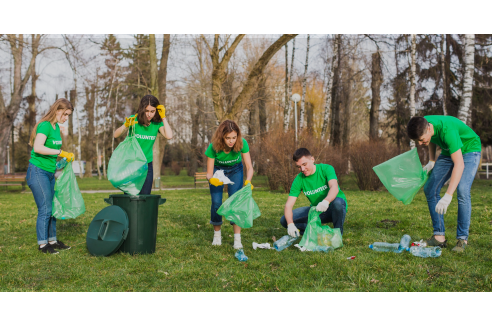In recent years, research has shed light on the alarming frequency of hoarding behavior among seniors. The distinctiveness of this age group lies in their accumulated wisdom. Agreed! But, it is also in the unique challenges they face as elders navigate their golden years. Studies suggest that hoarding tendencies tend to peak during late adulthood. It impacts approximately 2 to 5 percent of older adults, with a higher prevalence among those experiencing social isolation or cognitive decline. Our elders deserve to live in safe, clutter-free environments that promote well-being and enhance their quality of life. It is possible with the support of hoarders clean up services.
However, the overwhelming accumulation of possessions can lead to a myriad of adverse effects.
Given the unique circumstances surrounding hoarders, tailored clean up services designed specifically for them become imperative. Also, these services go beyond a one-size-fits-all approach.
They embrace the complexity and sensitivity of the situation. These services for seniors often involve a multidisciplinary approach. It brings together experts in psychology, social work, and organizational strategies.
Why Do They Feel The Need to Hoard?
Understanding the factors contributing to hoarding trends in this age group is essential. Why? Because it helps in unraveling the complexities of this phenomenon.
Loss and grief, unfortunately, can cast a long shadow on the lives of our cherished seniors. A cascade of emotions can be triggered in the following cases that, in some instances, lead to hoarding:
- The passing of loved ones
- The loss of independence
- The relinquishment of cherished roles
As they grapple with the profound sense of loss, seniors may cling to possessions as a source of comfort. They consider such stuff as a tangible connection to cherished memories.
Cognitive decline, another potential catalyst for hoarding, robs seniors of their mental acuity, impacting:
- Decision-making
- Organizational skills
As their cognitive faculties wane, the ability to sort, categorize, and discard possessions diminishes. This results in the accumulation of items that may hold little practical value but harbor immense emotional significance.
Furthermore, chronic illness and disability can play a meaningful role in the development and perpetuation of hoarding demeanors. Seniors facing physical limitations may find it problematic to engage in regular cleaning and decluttering activities. This can possibly lead to the gradual buildup of possessions. Additionally, the fear of needing certain items in the future, even if the likelihood is slim, may drive seniors to hold onto objects as a safety net against potential adversity.
Psychological aspects of hoarding
Anxiety and depression often coexist in hoarding. The overwhelming sense of anxiety, fear, and distress that accompanies the thought of discarding possessions can be a powerful force. It creates a vicious cycle. The act of acquiring and surrounding oneself with items becomes a means to alleviate these negative emotions. Nevertheless, the relief is often short-lived. Further, it will lead to the accumulation and exacerbation of the underlying anxiety and depression.
Attachment to possessions forms a substantial psychological underpinning of hoarding. Seniors may develop deep emotional connections to their belongings. They practice imbuing them with sentimental value that transcends their practicality. Each item becomes a repository of memories, a representation of their personal history. Letting go of these possessions may feel akin to severing a cherished tie to the past. This contributes to the resistance to decluttering. Yes, even when a skilled hoarding cleaning company is there to help.
Fear of loss and waste, though understandable, can also play a pivotal role in hoarding among seniors. As they confront the reality of mortality and finite resources, the fear of discarding something that may prove valuable in the future becomes a prominent concern. Seniors may perceive throwing away items as an unnecessary loss. They consider it a waste of potentially useful objects that could be repurposed or passed on.
Need Hoarding Cleanup? We’re Just a Call Away
& Ready to Respond Quickly!

Tailoring Hoarders Clean Up Services for Seniors
The journey towards a clutter-free environment begins with an initial assessment and meticulous planning. Both the seniors and their families must prefer adopting a collaborative approach. This is how a comprehensive understanding of the unique needs and limitations of the individual can be gained. It allows for the development of a customized cleaning plan. Moreover, this plan takes into account the specific challenges and aspirations of the senior hoarders.
Throughout the cleaning process, sensitivity and compassion should guide every step. Building trust and rapport with the senior is paramount. An environment of understanding and non-judgment helps the cleaning professionals to establish a solid foundation for cooperation. Effective communication is crucial in ensuring that the senior is informed and involved in decision-making. This authorizes them to have a sense of control and ownership over the process. Besides, the outcome is a more positive and collaborative experience.
To pull through the intricate world of senior hoarding, engaging professional organizers and mental health experts is of utmost importance. These specialists bring their training and experience in working specifically with senior hoarders. Moreover, they come armed with a deep understanding of the psychological factors at play. Also, they recognize that behavior is often a manifestation of underlying emotional issues. Moreover, they employ strategies to address them effectively. In some cases, coordinating the clean up efforts with therapy or counseling can provide a holistic approach. It promises that the emotional well-being of the senior is supported throughout.
When seeking clean up services for hoarders, one must choose a company that specializes in working with senior hoarders. These experts understand the unique challenges associated with this demographic. Also, they possess the skills and knowledge necessary to tackle them effectively.
Post-Clean Up Support and Resources
Once the clean up process for senior hoarders is complete, providing post-cleanup support becomes very important. Transitioning to a decluttered living environment can be both exciting and demanding. Professionals need to offer them the necessary support to adjust and thrive in their newfound surroundings. Coping strategies tailored to their specific needs can help manage any lingering anxiety or grief. It caters to the stress that may arise during this period of change. Additionally, connecting seniors with support groups or social services can foster a sense of community. It provides ongoing assistance so they have a network of understanding individuals to lean on when needed.
Scheduling regular check-ins or follow-ups with the seniors is paramount. It is a proactive way to maintain their continued well-being and the longevity of their clutter-free living space. These check-ins allow for the identification of any signs of relapse, enabling prompt intervention and support. In situations where additional help may be necessary, engaging home care services or professional organizers can provide vital aid. They will uphold the organization and cleanliness of the senior’s environment.
Why LifeCycle Transitions?
We take pride in our commitment to providing comprehensive support. With our transitional support services, we help seniors navigate the adjustment period smoothly. Our compassionate professionals are well-versed in offering coping strategies. They bring forth the resources, enabling seniors to embrace their decluttered surroundings with confidence and resilience.
